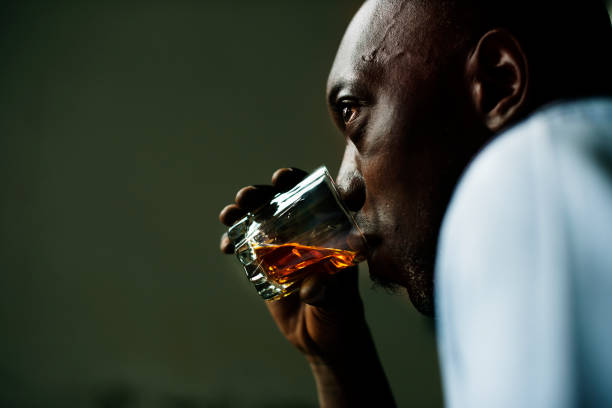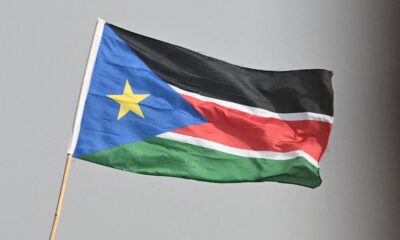News
DEADLY DRINKS: UK Sounds Alarm as Toxic Alcohol Crisis Grips Kenya
If methanol is being successfully mixed into drinks consumed at bars and clubs, questions arise about how bootleggers are obtaining untreated industrial alcohol or whether denatured methanol is being processed to remove the bitter additive before being mixed into cocktails.

British government expands methanol poisoning warning to Kenya, raising fears of widespread contamination in bars and clubs
The British government has issued a chilling warning to its nationals in Kenya, cautioning them against consuming cocktails, shots, and drinks served in jugs amid growing concerns over methanol poisoning from counterfeit alcohol flooding the country’s entertainment scene.
The Foreign, Commonwealth and Development Office has placed Kenya on a list of high-risk countries where toxic methanol is being mixed into alcoholic beverages, a practice that has already claimed lives across multiple nations. The industrial chemical, commonly found in antifreeze and paint thinners, is being illegally added to spirit-based drinks by unscrupulous operators looking to cut costs and maximize profits.
The stark reality is that methanol is a silent killer. Tasteless and odorless, the toxic substance gives no warning before it strikes.
Even small amounts can cause permanent blindness or death within 12 to 48 hours of consumption. By the time victims realize something is wrong, it is often too late for medical intervention to prevent catastrophic damage.
British nationals have been explicitly told to avoid consuming homemade or street-side alcohol and to exercise extreme caution with pre-mixed cocktails, shots, and drinks served in buckets or jugs at entertainment venues. The advisory recommends purchasing only sealed or bottled drinks from licensed establishments, a warning that has sent shockwaves through Kenya’s vibrant nightlife industry.
Hamish Falconer, the UK Minister responsible for Consular and Crisis Affairs, did not mince words about the severity of the threat. “Methanol poisoning can kill. It can be difficult to detect when drinking, and early symptoms mirror ordinary alcohol poisoning. By the time travellers realize the danger, it can be too late,” he warned.
The symptoms of methanol poisoning read like a nightmare. Initial signs including nausea, vomiting, dizziness, and confusion can easily be mistaken for ordinary intoxication. But within 12 to 48 hours, victims experience blurred vision, complete blindness, or difficulty breathing. Without immediate medical intervention, death follows swiftly.
Kenya now finds itself in alarming company on the UK’s methanol warning list, joining Ecuador, Japan, Mexico, Nigeria, Peru, Russia, and Uganda. The inclusion of two East African nations has raised serious questions about the extent of alcohol counterfeiting operations across the region.
John Mwangi, a spirits and wine dealer in Mombasa, admitted the advisory was deeply concerning. “I read the notice, though there’s some truth, it is alarming. This will make me only order my stock from credible suppliers,” he said, acknowledging the reality behind the British warning.
The Kenyan government, however, has moved quickly to reassure both locals and visitors. The Kenya Bureau of Standards insists that all methanol in the country, whether locally manufactured or imported, undergoes mandatory denaturation with denatonium benzoate, the bitterest chemical known to science. This process theoretically makes methanol impossible to consume as the extreme bitterness prevents ingestion.
“All methanol in the country is denatured by adding the bitterest chemical known. This ensures methanol found in Kenya can never be mistaken for alcohol, as the compound gives it an extremely bitter taste that prevents ingestion,” KEBS stated with confidence.
But the British warning suggests a different reality on the ground. If methanol is being successfully mixed into drinks consumed at bars and clubs, questions arise about how bootleggers are obtaining untreated industrial alcohol or whether denatured methanol is being processed to remove the bitter additive before being mixed into cocktails.
The warning comes at a particularly sensitive time for Kenya’s tourism and hospitality sectors, which are still recovering from pandemic-era disruptions. The country’s nightlife and entertainment industry generates billions of shillings annually, and any perception of unsafe drinking environments could have devastating economic consequences.
Industry insiders worry that the British advisory, now public knowledge, will damage Kenya’s reputation as a safe destination for international visitors. The timing is especially painful as the country pushes to attract more tourists and business travelers to support economic growth targets.
The FCDO has launched a campaign called “Know the Signs of Methanol Poisoning” to educate travelers about the dangers. The campaign follows engagement with parliamentarians, industry bodies, and families affected by methanol poisoning incidents overseas.
For revelers planning their weekend activities, the message is clear but unsettling. That innocent-looking cocktail or shot could contain a deadly surprise. The drink served in a large jug for sharing among friends might be laced with industrial poison. And there is absolutely no way to tell by taste, smell, or appearance.
The crisis has exposed the dark underbelly of Kenya’s alcohol industry, where the pursuit of profit has led some operators to play Russian roulette with consumer safety. While legitimate manufacturers and retailers follow strict standards, a shadow market of counterfeit and adulterated alcohol continues to flourish, targeting unsuspecting consumers at bars, clubs, and informal drinking establishments.
Medical experts warn that anyone experiencing symptoms after drinking should seek urgent medical attention immediately. Methanol poisoning requires specific treatment, and delays can mean the difference between recovery and permanent disability or death.
As the weekend approaches and Kenyans prepare to unwind at their favorite watering holes, the British government’s warning hangs heavy in the air. The question on everyone’s mind is simple but terrifying: Is my drink safe?
Kenya Insights allows guest blogging, if you want to be published on Kenya’s most authoritative and accurate blog, have an expose, news TIPS, story angles, human interest stories, drop us an email on [email protected] or via Telegram
-

 Business2 weeks ago
Business2 weeks ago‘They’re Criminals,’ Popular Radio Presenter Rapcha The Sayantist Accuses Electric Bike Firm Spiro of Fraudulent Practices
-

 Business1 week ago
Business1 week agoIt’s a Carbon Trading Firm: What Kenyans Need to Know About Spiro’s Business Model Amid Damning Allegations of Predatory Lending
-

 Business7 days ago
Business7 days agoManager Flees Safaricom-Linked Sacco As Fears Of Investors Losing Savings Becomes Imminent
-

 News1 week ago
News1 week agoWoman Accused in High Defamation Blames AI As Case Exposes How Mombasa Billionaire Mohamed Jaffer Allegedly Sponsored Smear Campaign Linking Joho’s Family To Drug Trafficking
-

 Investigations2 weeks ago
Investigations2 weeks agoDisgraced Kuscco Boss Arnold Munene Moves To Gag Media After Expose Linking Him To Alleged Sh1.7 Billion Fraud
-

 Africa1 week ago
Africa1 week agoDisgraced Oil Trader Idris Taha Sneaks Into Juba as Empire Crumbles
-

 Investigations2 weeks ago
Investigations2 weeks agoFraud: How Sh235 Million Donor Cash For Nyamira Residents Was Embezzled Through Equity Bank Under Governor Nyaribo’s Watch
-

 Sports2 weeks ago
Sports2 weeks ago1Win Games 2025: Ultimate Overview of Popular Casino, Sports & Live Games











